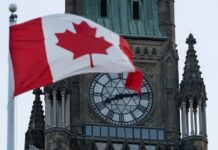
Turkey has named Burhan Koroglu, its former ambassador to Mauritania, as chargé d’affaires of its embassy in Damascus, signaling a potential recalibration of relations with Syria. Turkish Foreign Minister Hakan Fidan announced the decision Thursday, highlighting Ankara’s ongoing efforts to address the Syrian crisis through diplomatic, security, and humanitarian measures.
The Turkish embassy in Damascus has remained closed since March 2012, when Turkey suspended operations in response to the Assad regime’s crackdown on peaceful demonstrators during Syria’s civil unrest. Recent developments, including the takeover of Damascus by revolutionary forces and the end of the Baath Party and Assad family dominance, have reshaped the political landscape.
Ibrahim Kalin, Turkey’s intelligence chief, visited Damascus this week, according to sources cited by Reuters. Kalin reportedly toured the historic Umayyad Mosque, a visit observed under heightened security measures. His presence marks a rare instance of high-level Turkish officials engaging directly within Syrian territory since the conflict began nearly 14 years ago.
President Recep Tayyip Erdogan reaffirmed Turkey’s commitment to supporting the Syrian people, preserving Syria’s territorial integrity, and combating terrorism. Speaking on Ankara’s approach, Erdogan emphasized plans for the dignified and voluntary return of Syrian refugees while prioritizing reconstruction efforts to facilitate their reintegration.
“Turkey will not tolerate any organization that threatens its national security,” Erdogan said, referencing groups such as ISIS and the Kurdistan Workers’ Party (PKK), which Ankara has designated as terrorist entities. Erdogan also called on the international community to bolster efforts in stabilizing Syria and reviving its institutions.
Fidan outlined Turkey’s objectives during a press conference with US Secretary of State Antony Blinken in Ankara. He underscored the importance of preventing terrorist groups from establishing footholds in Syria and ensuring stability in the region. “We held detailed discussions on common concerns and potential solutions to ensure that Syria does not become a safe haven for terrorist organizations,” Fidan said.
The ongoing dialogue reflects Turkey’s strategy to balance its national security priorities with broader regional stability. Reconstruction in Syria, counterterrorism operations, and addressing the plight of displaced Syrians remain central to Ankara’s foreign policy goals.
Koroglu’s appointment signals a cautious yet noteworthy step in Turkey’s engagement with Syria. An academic with a background in international relations and regional cooperation, Koroglu is expected to advance dialogue on shared security concerns, particularly those posed by groups operating along Turkey’s southern borders. As Turkey navigates this delicate phase of engagement, observers are closely watching for signs of broader rapprochement or shifts in its policy toward the conflict-ravaged nation.








